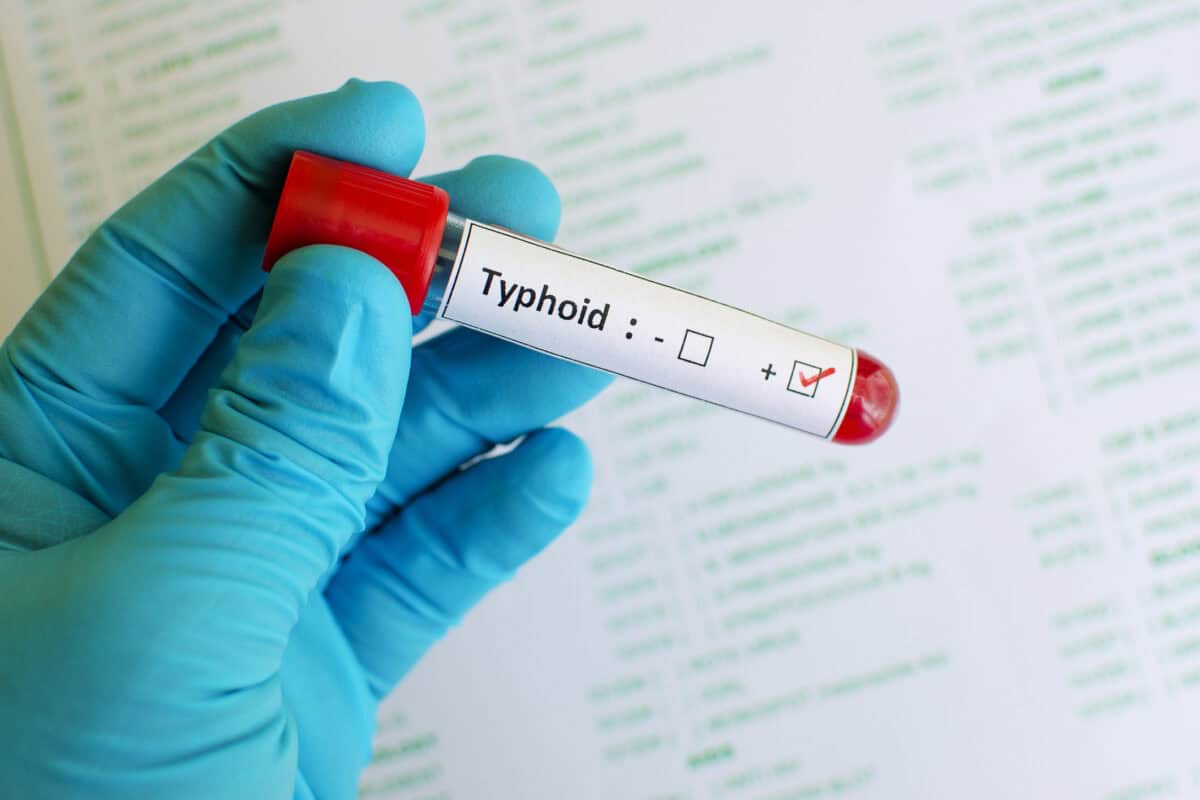
Blood sample with typhoid positive
The City of Tshwane has not yet determined the source of the typhoid outbreak as no Salmonella typhi could be found in any of the drinking water sources tested.
“The investigations and interventions will continue until such time that the root cause of the disease has been established,” said Tshwane spokesperson Lindela Mashigo.
He said although the surge in confirmed typhoid cases have indicated that most of these were from informal and rural settlements, the drinking water samples taken and tested have not determined an epidemiological link between these cases.
No typhoid detected in Tshwane’s drinking water
Mashigo said Tshwane district has reported a total of 48 cases of typhoid since the beginning of 2025, of which 15 were reported in October, with no new cases reported in the last week of October.
“Of these cases, two have resulted in fatalities. While the city is concerned about the slight increase in cases in 2025 compared to 2024, it must be noted that typhoid is an endemic disease in South Africa, which means it is consistently present in a population in a certain geographic area.”
ALSO READ: Gauteng Health warns of typhoid fever: here are the symptoms
Mashigo said of the 15 reported cases last month, 11 were recorded in Hammanskraal, one in Pretoria West and three in Bronkhorstspruit.
“Four patients have been hospitalised as of 3 November,” he said.
Medical expert and South African Medical Association (Sama) chair Dr Angelique Coetzee said typhoid was a serious bacterial infection, caused by a bacterium which spreads mainly through contaminated water or food, especially in areas with poor sanitation or unsafe drinking water.
Spreads through contaminated water or food
“In simple terms, when you have sewage water or dirty water that mixes with what people eat or drink, the bacteria can enter the body and cause infection,” she said.
Coetzee said symptoms usually show about one to two weeks after exposure and may include persistent high fever, severe head and body aches, weakness, loss of appetite, severe stomach pain, nausea and vomiting.
ALSO READ: Typhoid breaks out in Tshwane
“Sometimes it might cause a rash on the chest, rose spots, but not always,” she added.
If left untreated, it can lead to serious complications, like intestinal bleeding or perforation, Coetzee said.
Practice good hygiene – Gauteng health
Gauteng department of health spokesperson Kealeboga Mohajane said: “In light of these cases, the public is urged to practise good hygiene by washing hands with soap and safe water before eating or preparing food, after using the toilet or changing a baby’s nappy and before breastfeeding or bathing children.
“In settings where water is not readily available, hand sanitisers containing at least 60% alcohol are recommended.”



